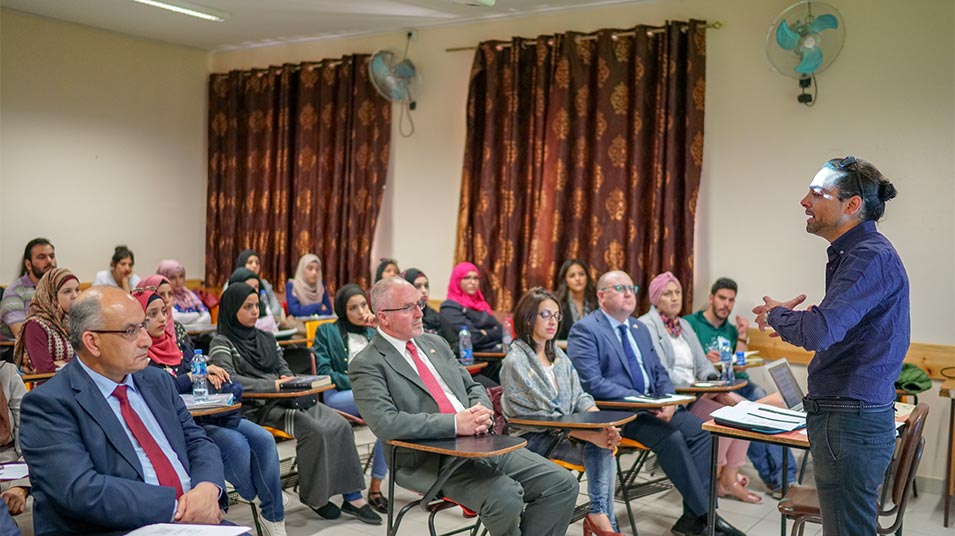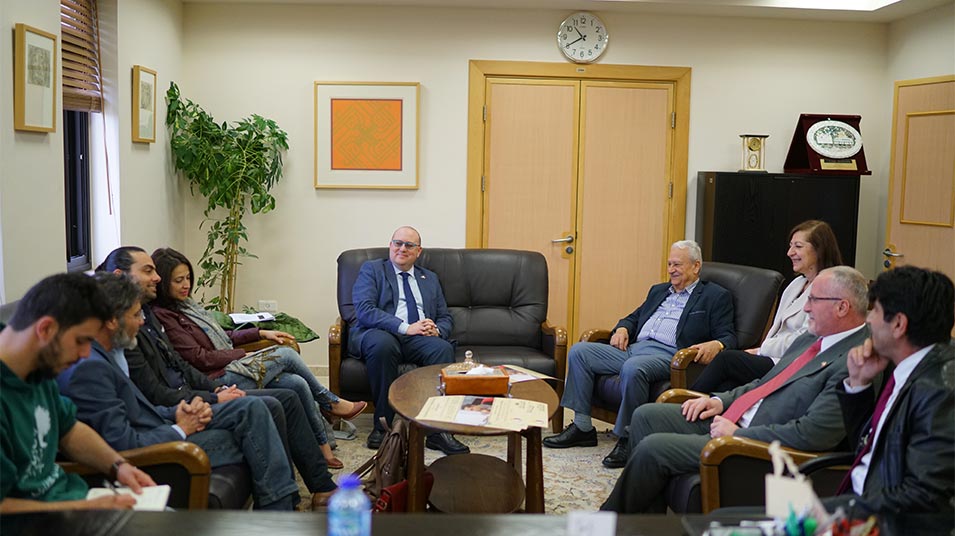Birzeit students recognize Palestinian inspiration in Maltese literature
Dr. Norbert Bugeja, a senior lecturer in the Mediterranean Institute at the University of Malta, gave a lecture at Birzeit University on the history of Maltese literature and parallelism with the Palestinian resistance literature.
The lecture, held on Thursday, May 10, 2018, was attended by students from the departments of Arabic and English language and literature at Birzeit University, along with Reuben Gauci, head of the Representative Office of the Republic of Malta in Palestine, and Walid Nabhan, a famed Maltese author and translator of Palestinian origins.
The Maltese delegation, before the lecture, met with President of Birzeit University Dr. Abdullatif Abuhijleh and Director of the Public Relations Office Lubna Abdel Hadi, and discussed the relationship between Palestinian and Maltese poetry, arts, and culture.
The teams also explored inviting Maltese scholars and academics to give courses at Birzeit University, and student and staff mobility under the Erasmus+ program.
“We at Birzeit University strive to provide our students with an international perspective that allows them to tackle issues from a multifaceted perspective, and become better leaders of their communities,” remarked Abdullatif, noting the university’s various enriching programs and extra-curricular activities.
In the lecture, entitled “Journeys in Writing: Malta, Palestine and Literatures in Between,” Bugeja reviewed Malta’s post-British-Mandate literary quest, and the genres and literary movements that grew within that period.
“Between 1966 and 1971, there was a massive literary experimentation movement in Malta. On one hand, the movement wanted to break free of the Romanticism of those that came before them, and on the other hand, the poets, novelists, and authors wanted to escape from the colonial mindset and the nascent political parties that dominated that era,” explained Bugeja, providing students with the context in which Maltese literature grew.
Modernist Maltese poets, like Mario Azzopardi, Daniel Massa, and Victor Fenech, said Bugeja, drew inspiration from Palestinian literary icons, such as Mahmoud Darwish, Ghassan Kanafani, Fadwa Tuqan, Mourid Barghouti, and Samih al-Qasem.
“The poets,” noted Bugeja, “weaved a body of work through which motifs of national liberation and resistance come to be elaborated by means of a rich legacy in engaged verse: a repertoire whose imagery, metaphor, verse structure and thematics have many an intriguing resonance with the work of their great contemporaries writing in Palestine.”








